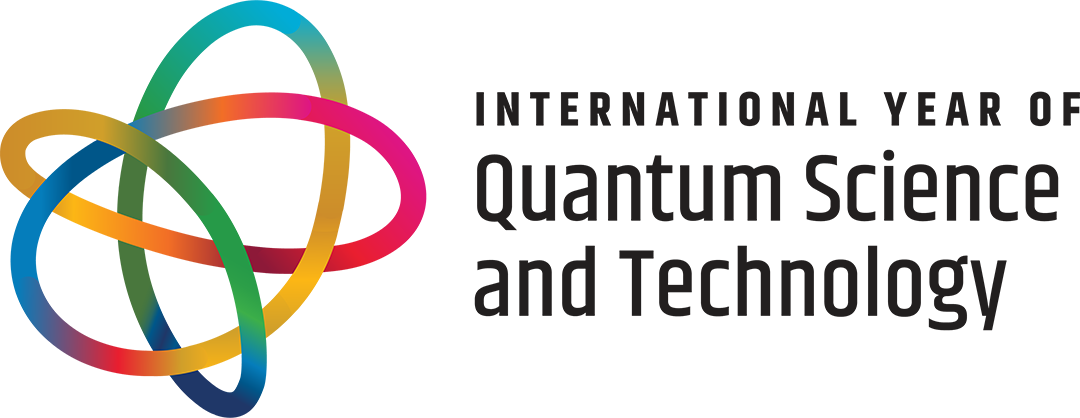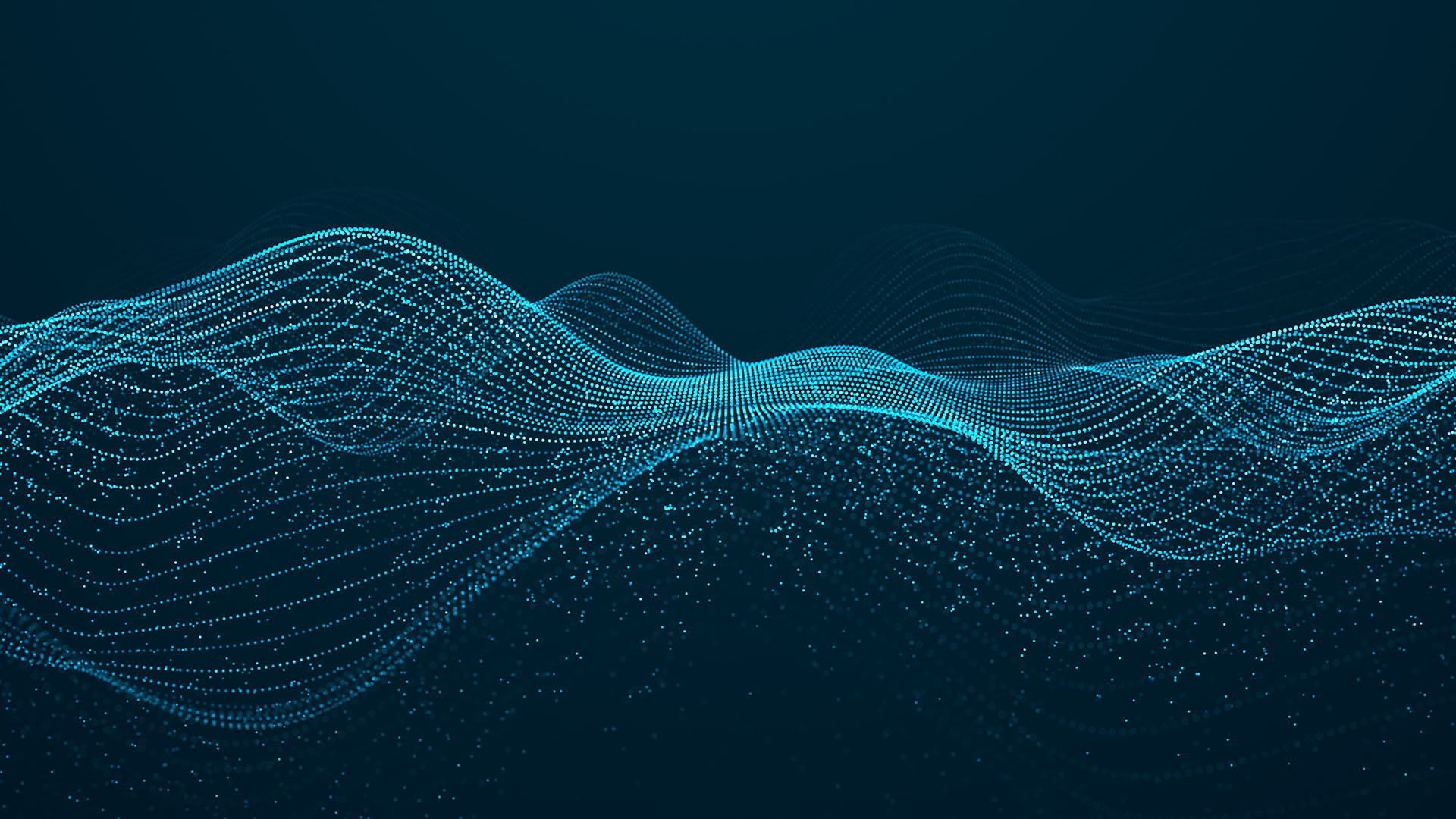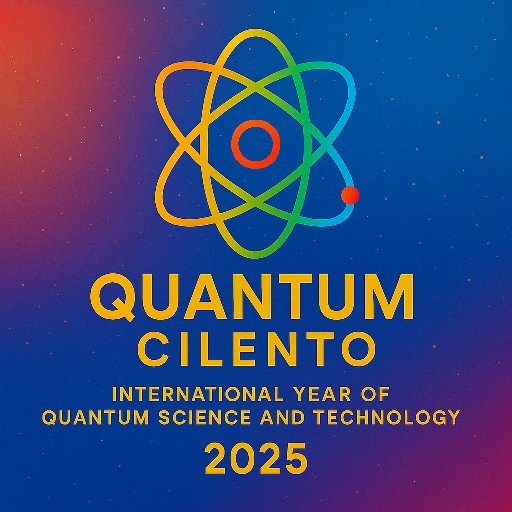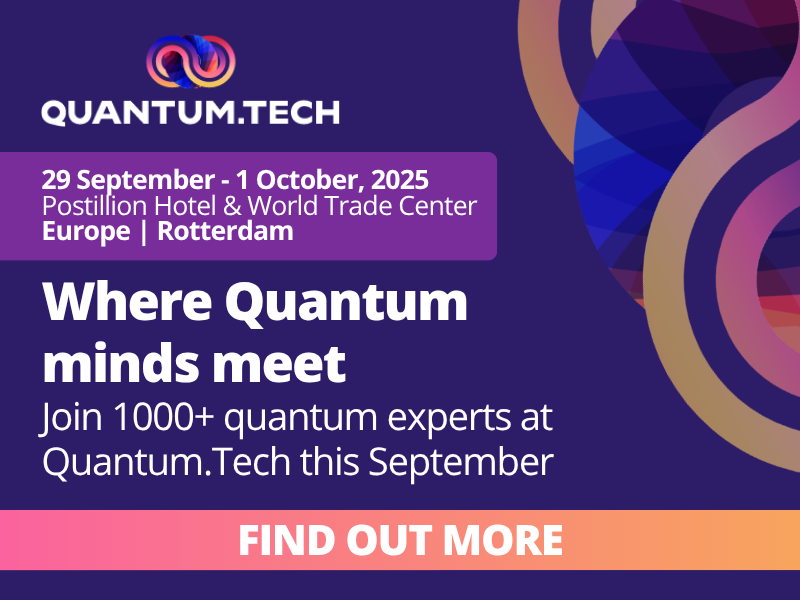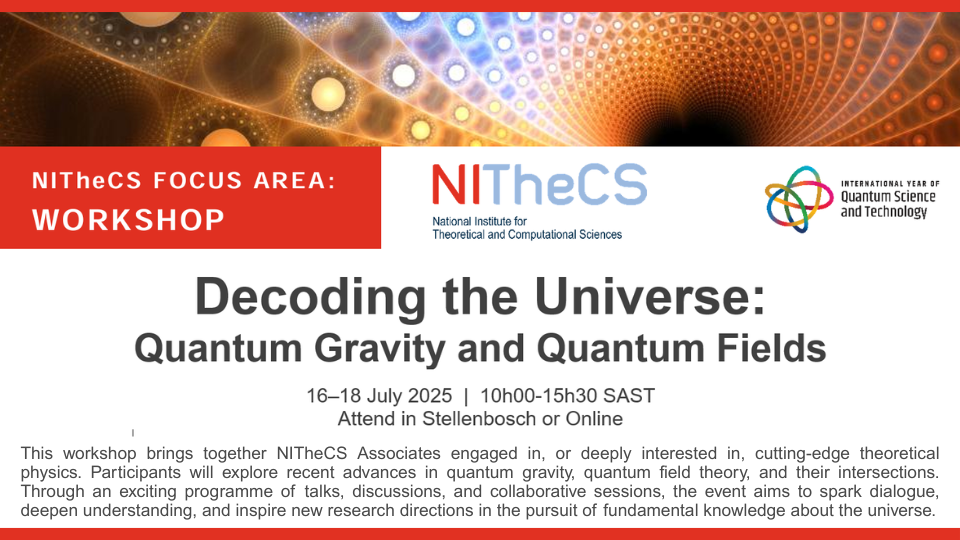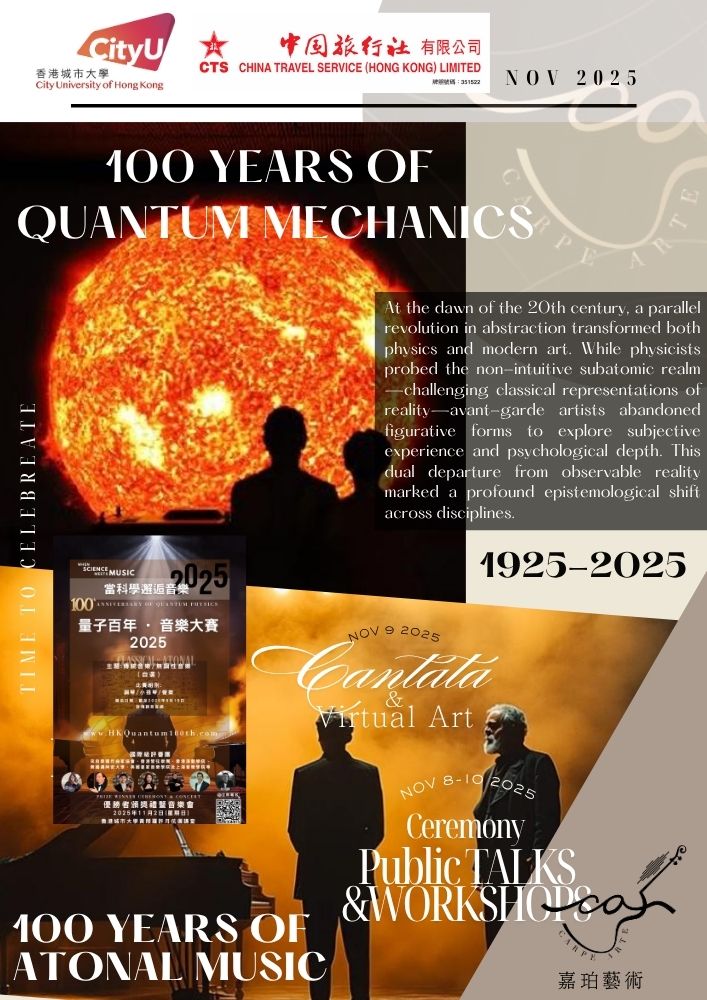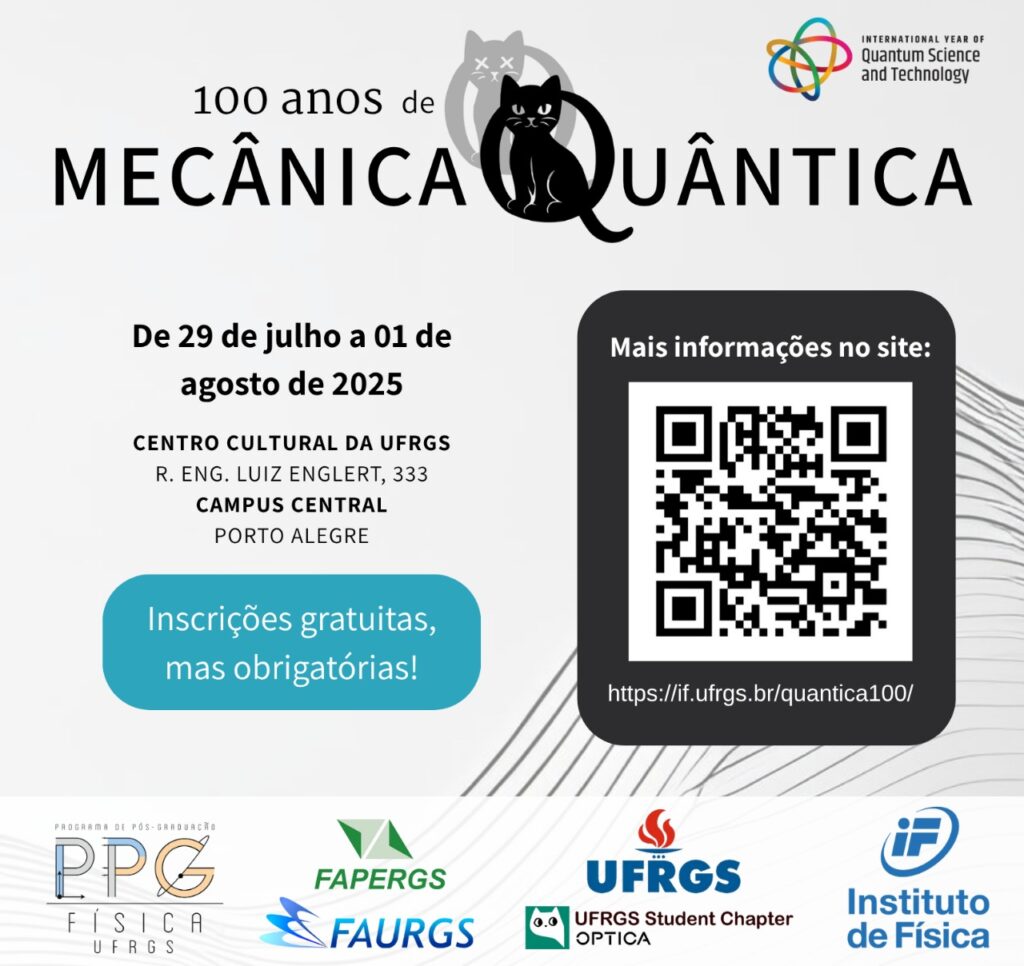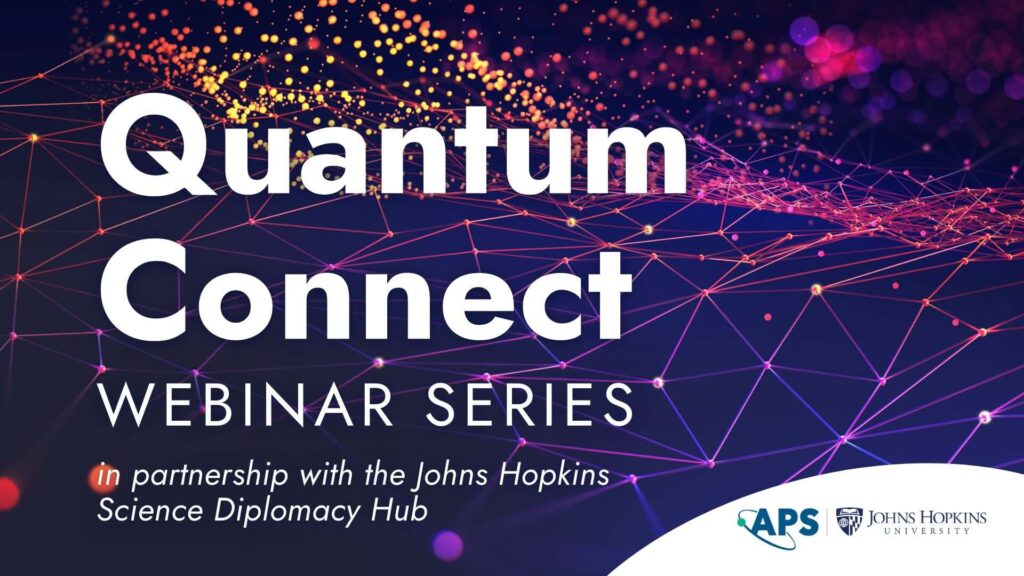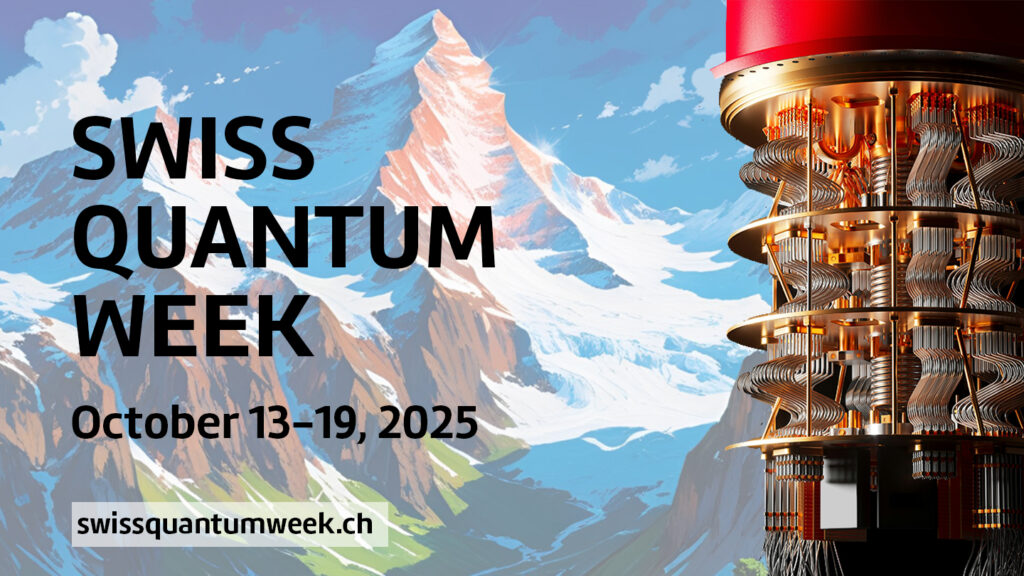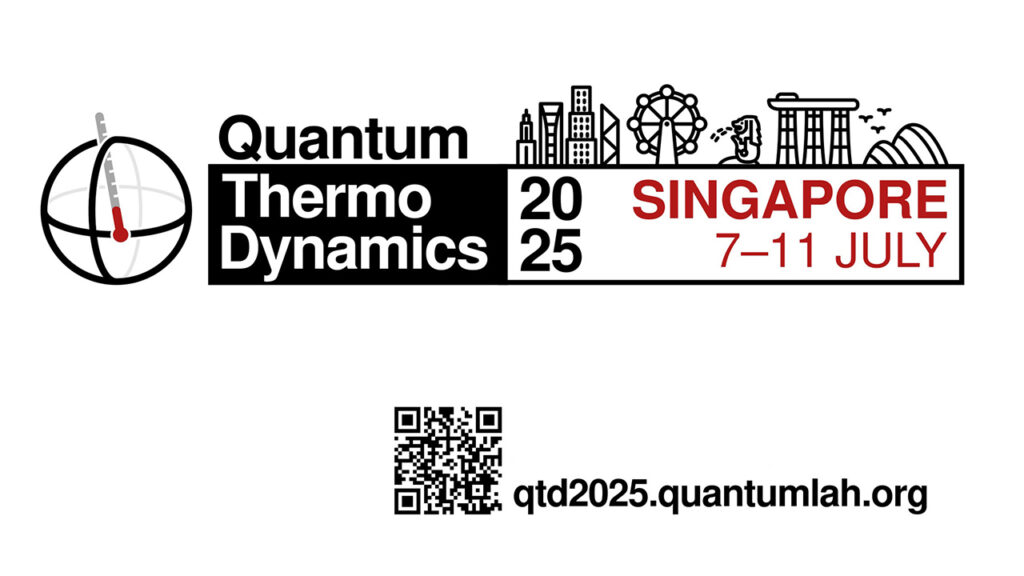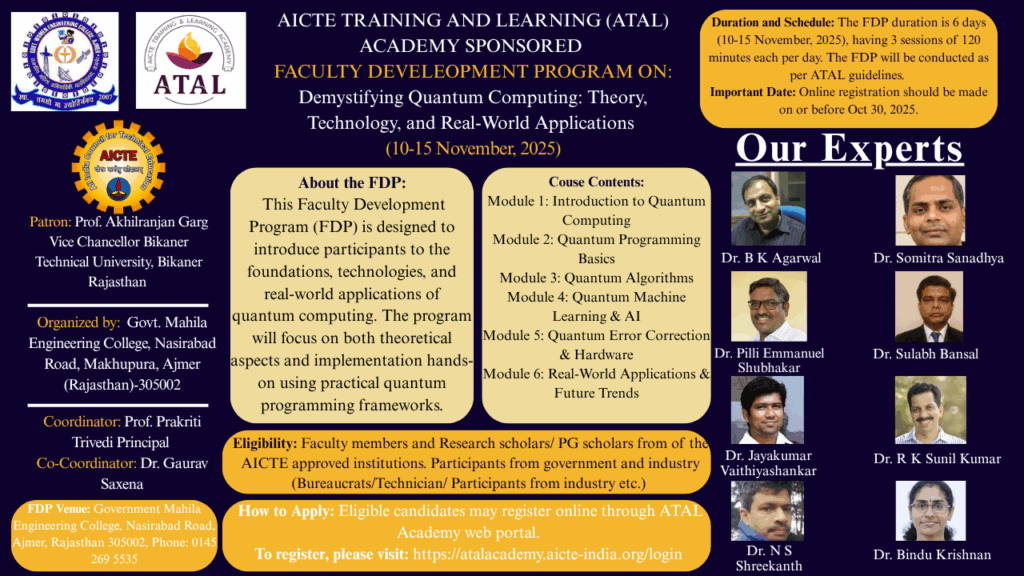In the occasion of the celebrations of the Quantum Year 2025, the Association “ Cilento Domani Arte e Cultura Mediterranea APS” based in the province of Salerno, South Italy, and the Association Scienza e Scuola APS are promoting an event aimed to spread consciousness among students and citizen of the Cilento area, about the enormous achievements in all fields of hard sciences since the Quantum interpretation paradigm has been introduced last century in Physics. The one-day conference will take place at the secondary school Liceo “Alfonso Gatto “ of Agropoli on November 12th. Talks will be given by physicists and chemists lecturing at the Università “Federico II” di Napoli. The goal is to convey the sense of how much the understanding of the quantum nature of our world and ourselves has been leveraged by technology to transform our way of life. The day before, an exhibition of kits showing lasers, LEDs, solar cells, and detectors controlled by information and communication technology will be on display to capture the students’ and visitors’ surprise and their interest, and to prepare them for the conference the next day.
Quantum.Tech Europe
Where quantum minds meet. Join 1,000+ enterprise leaders, researchers, start-ups, and tech giants for three days of actionable insights, strategic networking, and revolutionary innovation.
As quantum technologies move closer to enterprise adoption, this event brings together global leaders from organisations like IBM, Kraft Heinz, Mastercard, NASA, and more for three days of knowledge exchange and collaboration across eight dedicated stages. From cutting-edge AI to quantum-safe security, there’s something here for every sector pushing boundaries.
What to Expect:
- 100+ Expert Speakers from finance, pharma, aerospace, telecoms, and more
- 8 Content Stages covering quantum computing, cryptography, AI, sensing, and networking
- Live Demos & Product Showcases on a buzzing expo floor
- Start-up Pitch Competition spotlighting the next wave of quantum disruptors
- Workshops & Masterclasses for deep-dive learning and collaboration
NITheCS Focus Area Workshop: ‘Decoding the Universe: Quantum Gravity and Quantum Fields’
This workshop will bring together NITheCS Associates engaged in, or deeply interested in, cutting-edge theoretical physics. Participants will explore recent advances in quantum gravity, quantum field theory, and their intersections. Through an exciting programme of talks, discussions, and collaborative sessions, the event aims to spark dialogue, deepen understanding, and inspire new research directions in the pursuit of fundamental knowledge about the universe.
Symposium Celebrating the Quantum Century 2025
The year 2025 marks a historic milestone—100 years since the birth of quantum mechanics, a scientific revolution that redefined our understanding of nature at its most fundamental level. In celebration of this centenary and in alignment with the International Year of Quantum Science and Technology (IYQ 2025), declared by UNESCO, we proudly present the Workshop Celebrating the Quantum Century: From Puzzling Principles to Transformative Technologies 2025 (SCQC 2025).
Organized under the aegis of the COMSNETS Association, SCQC 2025 is a special edition workshop dedicated to reflecting on a century of quantum discoveries while charting the course for the next era of transformative quantum technologies. This workshop encompasses all four major drivers of quantum technology, i.e., computing, sensing, communications, and materials.
From the early philosophical debates on wave-particle duality and uncertainty to today’s advancements in quantum computing, communication, sensing, and materials, this workshop serves as a unique platform to bridge the journey from foundational principles to real-world impact.
SCQC 2025 will bring together a distinguished community of researchers, industry leaders, policymakers, entrepreneurs, startups, students, and educators.
100th Anniversary of Quantum Physics
2025 also marks the 100 years of atonal music. Dr. Wu Xiaodong, Founder of Executive Medical Physics Associates, a dedicated publisher and a sought-after lecturer in medical physics and cancer research worldwide, also a lifelong advocate for classical music, has discovered the connection between quantum physics and atonal music. To celebrate the 100th anniversary of the two inventions, he worked closely with a young American composer and created a brand new choral symphony, Quantum Odyssey. It consists of 7 acts, and we will perform Act II: The Unveiling of Quantum Laws as the world premiere performance.
This Choral Symphony will be performed by the prestigious tenor and soprano, together with Hong Kong’s famous conductor and its orchestra and choir. Visual presentation created by students of the School of Creative Media of City University will be incorporated throughout the symphony. We aim to promote public participation in celebration of this 100-year event, to encourage science popularization and the understanding of science through music and the arts.
100 Anos da Mecânica Quântica
A commemorative event of the 100th anniversary of quantum mechanics was organized at the Physics Institute of the Universidade Federal do Rio Grande do Sul, Porto Alegre, Brazil. A series of colloquia and mini-courses at the student-level, combined with a night event, Pint-of-Science-like, for the general public. No fees, but entrance is limited by the size of the corresponding places.
The 2025 IYQ Quantum Connect Webinar Series
The American Physical Society presents the Quantum Connect Webinar Series in partnership with the Johns Hopkins Science Diplomacy Hub.
Quantum Technology in National Security examines the role of quantum technologies in national defense, including quantum radar, secure communications, and advanced sensing.
Swiss Quantum Week 2025
To mark the 100th anniversary of quantum science and technology, UNESCO has declared 2025 the International Year of Quantum Science and Technology. As part of this global celebration, members of Swiss academic institutions, the Swiss quantum industry, and science diplomacy and policymaking have come together to launch the Swiss Quantum Week.
Driven by a mission to connect the diverse stakeholders and users of quantum science and technology—from ecosystem builders and policymakers to researchers, students, and entrepreneurs—Swiss Quantum Week builds on the strengths of established, well-attended events such as QIDiS and the GESDA Summit to create a cohesive platform that includes:
• Swissnex Quantum Summit
• Quantum Industry Day in Switzerland
• The annual GESDA Summit
• Open Quantum Institute in-person gathering
• QAI Quantum Hackathon
• A Quantum Outreach Day for families and the general public
Each event is designed for a specific audience, while encouraging cross-sector dialogue and international collaboration. Swiss Quantum Week aims to broaden perspectives, foster meaningful connections, and strengthen the Swiss and global quantum landscape.
Quantum Thermodynamics 2025
Held on the equatorial plane of the Earth on the sunny island of Singapore, Quantum Thermodynamics (QTD) 2025 will cover the study of thermal processes at the quantum scale. This is the 2025 edition of the annual quantum thermodynamics conference: previous conferences have been held in Berlin (2013), Mallorca (2014), Porquerolles (2015), Erice (2016), Oxford (2017), Santa Barbara (2018), Espoo (2019), Barcelona (online, 2020), Geneva (online, 2021), Belfast (online, 2022), Vienna (2023), and Maryland (2024).
Demystifying Quantum Computing: Theory, Technology, and Real-World Applications
Demystifying Quantum Computing: Theory, Technology, and Real-World Applications is an AICTE Training and Learning (ATAL) Academy Sponsored Faculty Development Program (FDP) fully funded by the Government of India. Organized by Government Mahila Engineering College Ajmer (Rajasthan), this six-day offline FDP (10–15 November 2025) aims to introduce faculty, researchers, and professionals to the theoretical foundations and hands-on applications of quantum computing. The course features sessions on quantum programming, quantum machine learning, quantum error correction, and real-world use cases using platforms like IBM Quantum and Pennylane.
Eminent experts from IITs, NITs, premier R&D institutions, and industry will guide participants through lectures and practical labs. This government-supported initiative reflects India’s commitment to building capacity in emerging quantum technologies and invites cross-sector participation in shaping the future quantum ecosystem.

